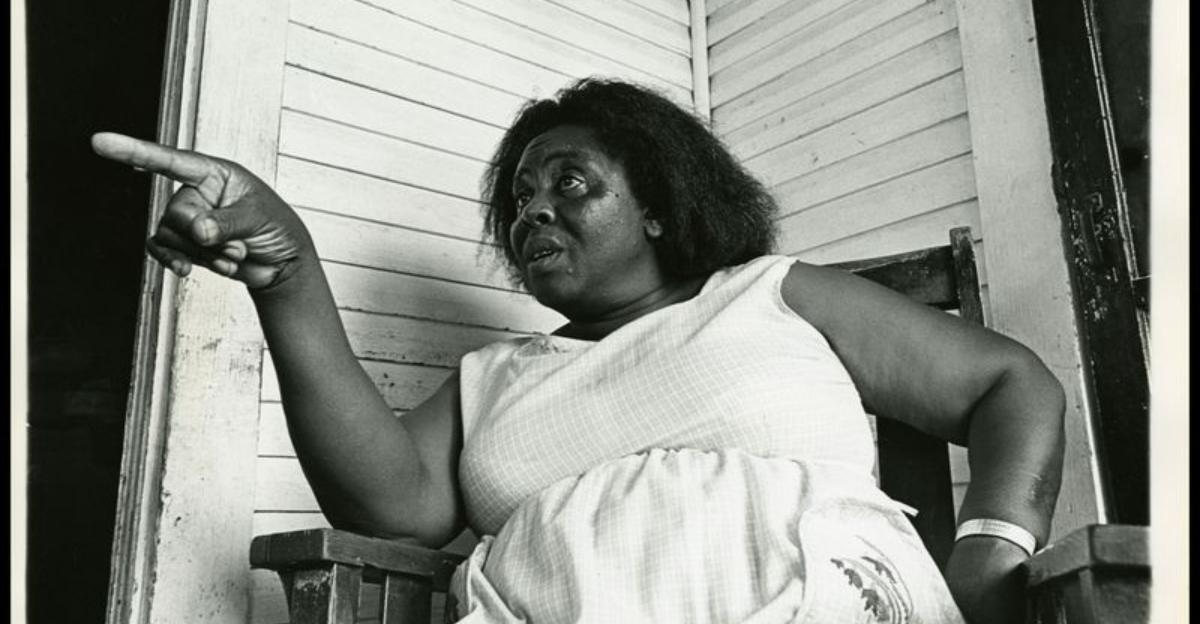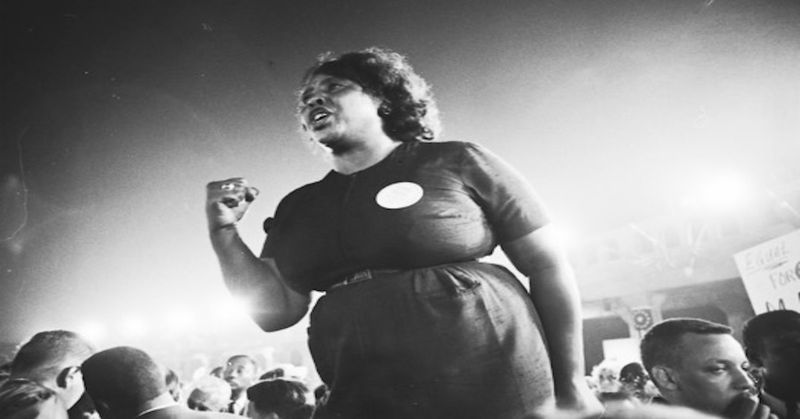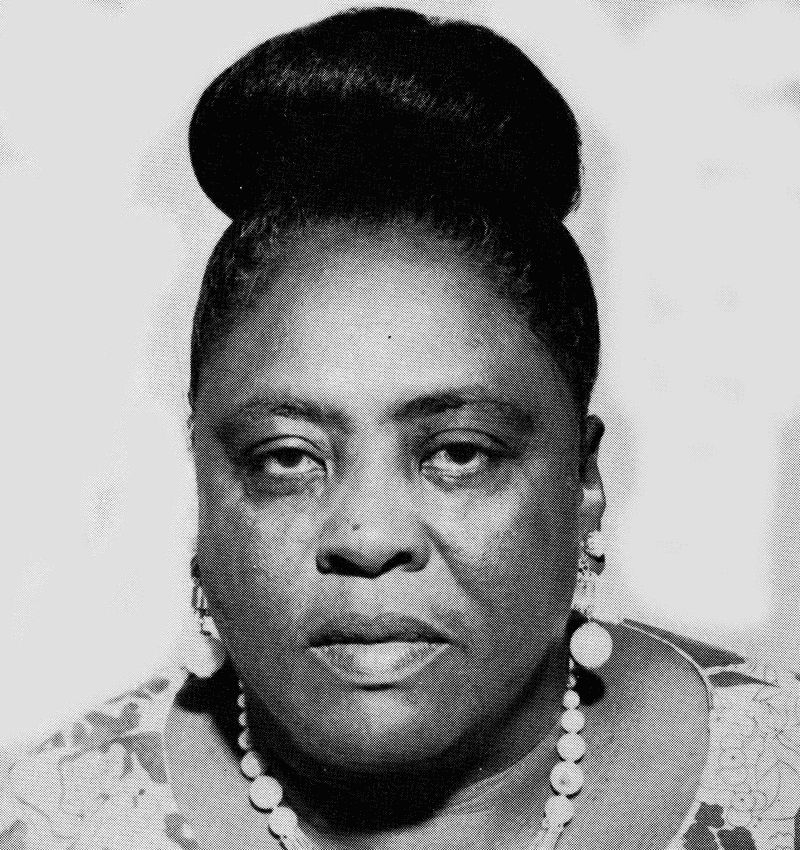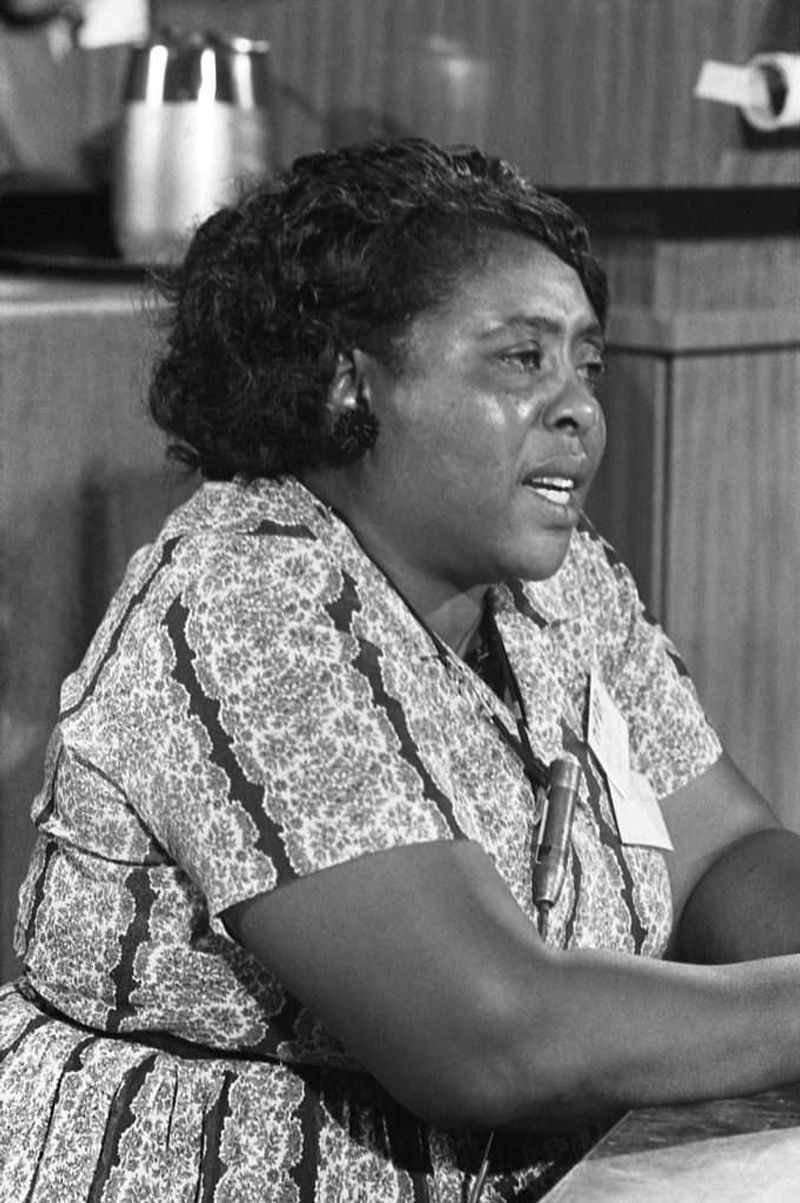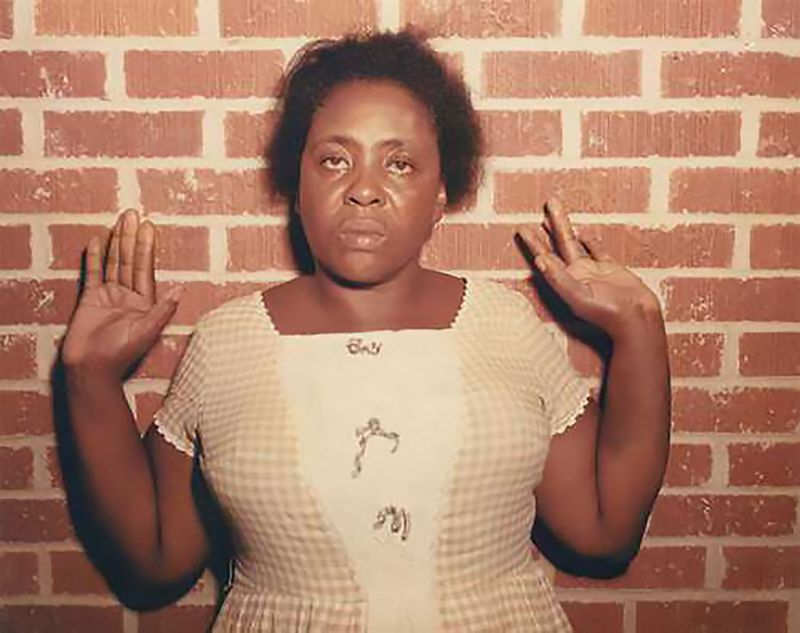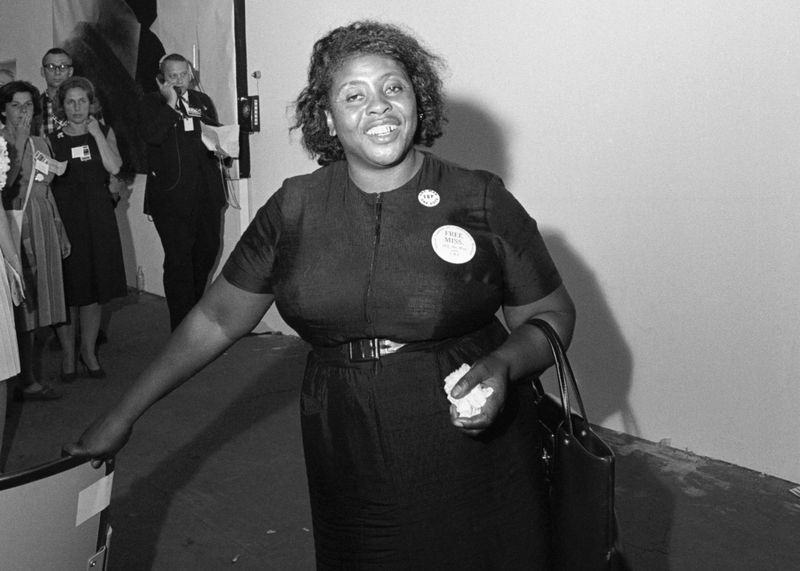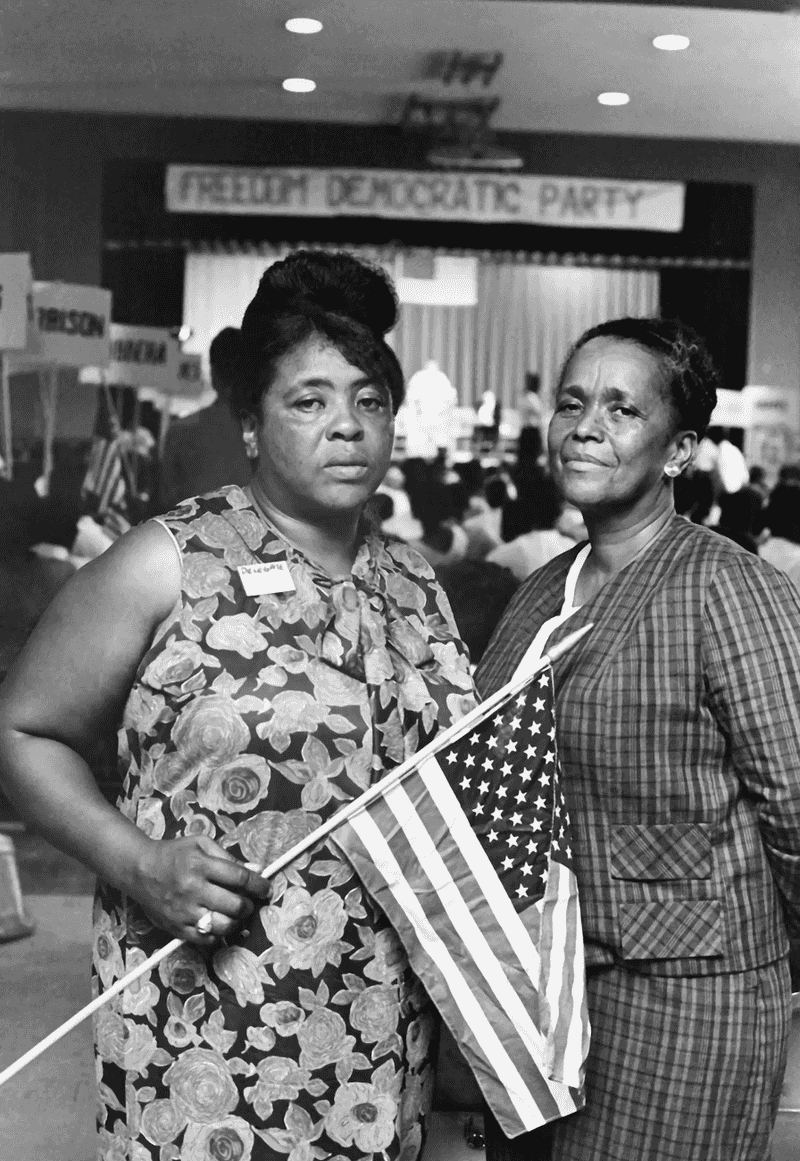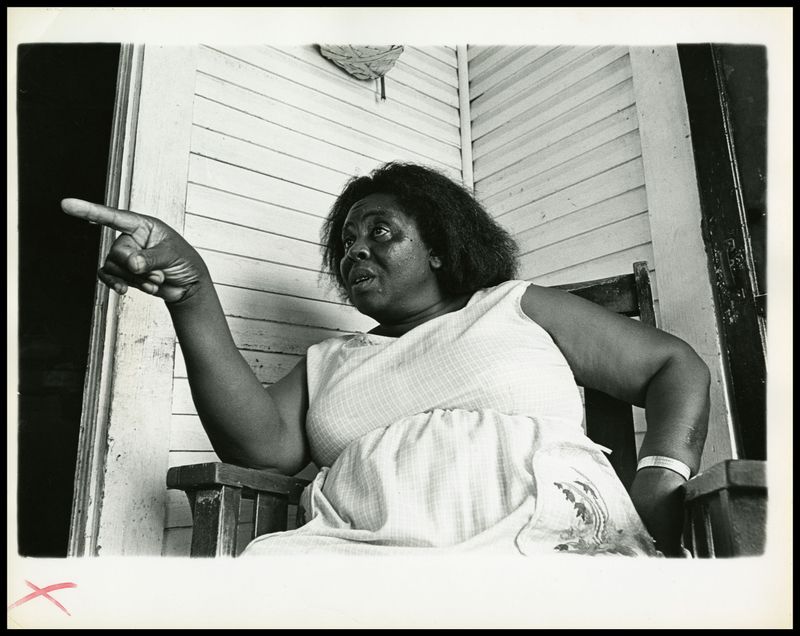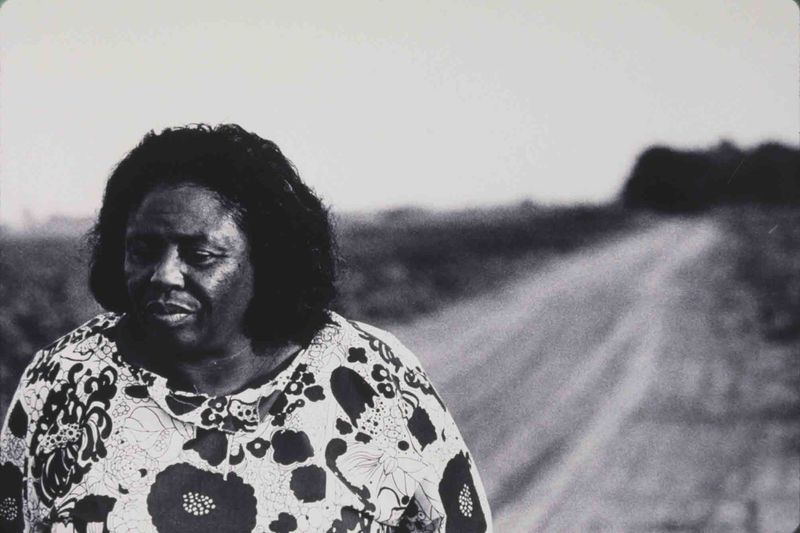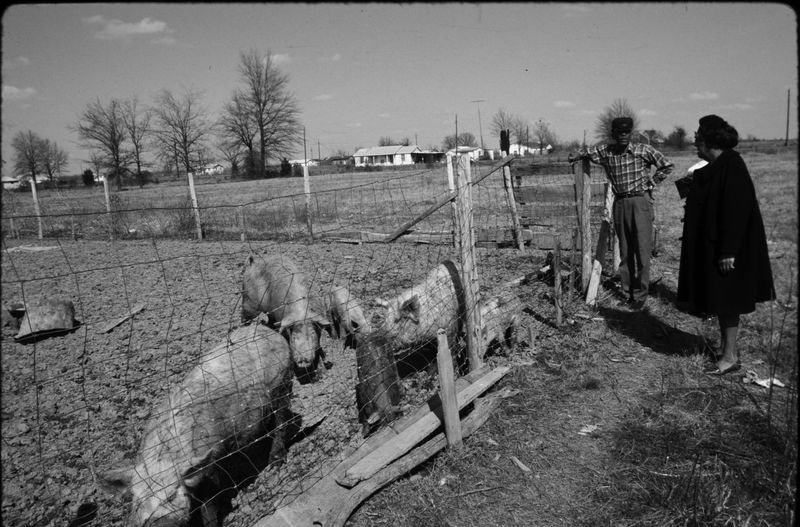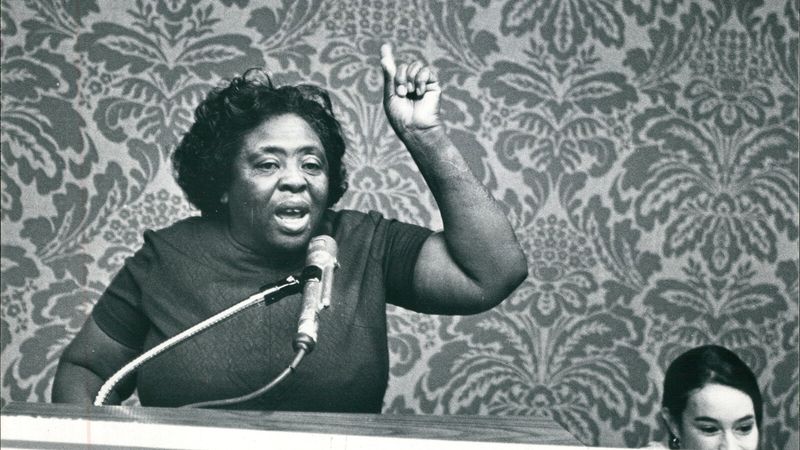Fannie Lou Hamer stands as one of America’s most courageous civil rights heroes, yet her story contains heartbreaking struggles often overlooked in history books.
Born into crushing poverty in Mississippi, she faced brutal violence, medical abuse, and constant threats while fighting for voting rights and racial equality.
Her personal suffering never dimmed her determination to create a better world for future generations, making her story both inspiring and profoundly tragic.
1. Born into Poverty as the Youngest of 20 Children
Mississippi, 1917 – Fannie Lou Hamer entered the world as the 20th child of sharecroppers with nothing to their name but determination. By age six, her tiny hands were already picking cotton under the scorching southern sun, a childhood stolen by economic necessity and racial oppression.
The Townsend family lived in a world where education remained a distant dream. Young Fannie only attended school through sixth grade before the fields claimed her completely.
Their home lacked electricity, indoor plumbing, and regular meals. This early hardship shaped Hamer’s understanding of injustice and planted seeds of resistance that would later bloom into powerful activism.
2. Family Livelihood Sabotaged by Racism
The Townsend family’s rare achievement of purchasing livestock represented a small victory against overwhelming odds. In Jim Crow Mississippi, Black economic advancement triggered immediate white backlash.
Under cover of darkness, resentful white neighbors poisoned the family’s animals. The deliberate act wasn’t just about destroying property – it was a calculated message that Black families shouldn’t dare seek economic independence.
This devastating loss plunged the family deeper into poverty and demonstrated the dangerous consequences of challenging racial hierarchies. Young Fannie absorbed this painful lesson, witnessing how even modest steps toward self-sufficiency were violently suppressed.
3. Endured a Forced Sterilization Without Consent
In 1961, a medical appointment became a life-altering violation. While undergoing surgery for a small uterine tumor, doctors performed a complete hysterectomy on Hamer without her knowledge or permission.
This horrifying practice occurred so frequently against Black women in the South that it earned the cynical nickname “Mississippi appendectomy.” Eugenics-based policies targeted Black women to control population growth, reflecting deeply entrenched racism within medical institutions.
The unauthorized procedure devastated Hamer, who had always dreamed of having biological children. This profound violation of her bodily autonomy fueled her growing anger against systemic injustice.
4. Brutally Beaten in Jail for Civil Rights Activism
The price of seeking equality came brutally due in 1963. Arrested after attempting to integrate a bus terminal in Winona, Mississippi, Hamer found herself at the mercy of racist authorities determined to teach her a lesson.
White officers ordered fellow inmates to savagely beat her with blackjacks. They took turns striking her repeatedly, targeting her kidneys and legs until her body was broken and bloodied on the cell floor.
The attack left permanent damage: a blood clot in her eye, kidney damage that would plague her for life, and a limp that became a physical reminder of the violence faced by those who dared challenge segregation.
5. Denied a Voice at the 1964 Democratic National Convention
Standing before the Democratic National Convention credentials committee, Hamer delivered one of history’s most powerful testimonies. Her unflinching account of beatings, threats, and voting rights violations exposed America’s racial hypocrisy on national television.
President Lyndon Johnson, alarmed by her effectiveness, hastily called an impromptu press conference. This calculated move diverted news cameras away from Hamer’s testimony, attempting to silence her devastating critique.
Though temporarily suppressed, her famous words – “I’m sick and tired of being sick and tired” – eventually reached millions. The silencing tactic revealed how even supposed political allies feared the unfiltered truth about racial violence in America.
6. Suffered from Chronic Health Issues Due to Activism
The physical toll of Hamer’s activism manifested in a body increasingly betrayed by illness. Years of beatings, stress, and inadequate medical care culminated in severe hypertension and diabetes that ravaged her system.
Rural Mississippi offered few healthcare options for Black patients. The nearest quality hospitals often refused treatment to civil rights activists, viewing them as troublemakers deserving of their suffering.
Pain became Hamer’s constant companion, yet she continued speaking, organizing, and fighting. Her deteriorating health represented an unacknowledged form of martyrdom – a slow sacrifice of her physical wellbeing in exchange for incremental progress toward justice.
7. Faced Economic Retaliation for Voting Rights Efforts
August 31, 1962 marked a turning point in Hamer’s life. After 18 years working on the Marlow plantation, she boarded a bus to attempt voter registration – a simple act of citizenship that carried devastating consequences.
Word reached her employer before she even returned home. The plantation owner delivered an ultimatum: withdraw her registration attempt or leave immediately. Hamer’s powerful response – “I didn’t go down there to register for you, I went down to register for myself” – cost her both job and housing.
With winter approaching and no income, she and her husband faced homelessness, a deliberate economic weapon used to punish Black political participation.
8. Battled Cancer Amid Limited Resources
Fame never translated to financial security for Hamer. When breast cancer struck in the mid-1970s, she faced the disease with the same resources available to other poor Black Mississippians – woefully inadequate healthcare, limited treatment options, and mounting medical bills.
Despite having addressed national conventions and met with presidents, Hamer couldn’t access the quality care that might have extended her life. Friends and supporters organized fundraisers to help cover expenses.
On March 14, 1977, at just 59 years old, this giant of American history died not in a prestigious hospital but in a segregated medical facility in Mound Bayou, Mississippi, her potential cut short by systemic healthcare inequities.
9. Advocated for Economic Justice Through the Freedom Farm Cooperative
Recognizing that political rights meant little without economic power, Hamer founded the Freedom Farm Cooperative in 1969. Her vision transformed 40 acres of Mississippi Delta land into a revolutionary experiment in Black self-sufficiency.
The cooperative provided land for farming, affordable housing, and educational opportunities for displaced sharecroppers. At its peak, it helped hundreds of families grow their own food and gain economic independence.
Financial hardships, lack of institutional support, and Hamer’s declining health forced the cooperative to dissolve in 1976. This heartbreaking closure represented not just a personal defeat but the systematic obstacles facing Black economic initiatives in America.
10. Legacy Overshadowed Despite Monumental Contributions
History books that extensively document male civil rights leaders often reduce Hamer to a footnote. Her raw, unpolished speaking style and rural background made her less marketable than college-educated counterparts in the movement’s mainstream narrative.
No major monuments or federal holidays commemorate her extraordinary sacrifice. Schools rarely teach the full scope of her contributions to voting rights, economic justice, and women’s rights.
This erasure represents a final injustice – that a woman who gave everything to America’s moral progress remains underrecognized. Her famous phrase “nobody’s free until everybody’s free” continues to inspire activists today, even as her complete story awaits proper recognition in our national memory.
